Search
Did you mean: Electra by Euripides?
Remove Ads
Advertisement
Summary 
Loading AI-generated summary based on World History Encyclopedia articles ...
Search Results
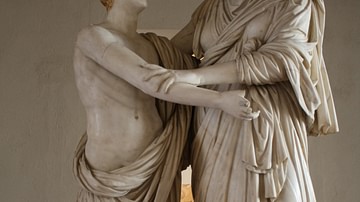
Definition
Electra by Euripides
Electra is a Greek tragedy written by the playwright Euripides c. 420 BCE. It retells the classic myth concerning the plotting of Electra and her brother Orestes to kill their mother and her lover. This version of the story should not be...

Definition
Electra by Sophocles
Electra is a play written by the 5th-century BCE Greek tragedian Sophocles. Similar to Aeschylus' Libation Bearers, Electra focuses on the return of Electra's brother Orestes from exile and the plot to murder their mother. Years earlier...

Definition
Euripides
Euripides (c. 484-407 BCE) was one of the greatest authors of Greek tragedy. In 5th century BCE Athens his classic works such as Medeia cemented his reputation for clever dialogues, fine choral lyrics and a gritty realism in both his text...
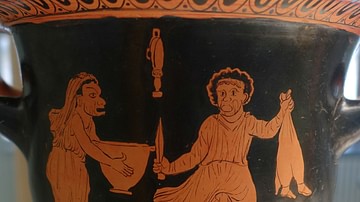
Definition
Thesmophoriazusae
The Thesmophoriazusae (also called The Poet & the Women or Women at the Thesmophoria) is a two-act comedy play written in 411 BCE by the great Greek comic playwright, Aristophanes. The play's principal focus is on the Greek tragedian Euripides...
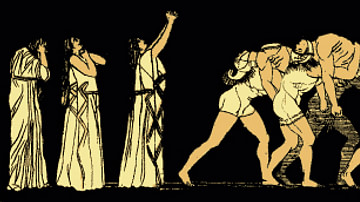
Definition
Suppliants by Euripides
The Suppliants (also given as Suppliant Women) is a Greek tragedy written by Euripides, not to be confused with Aeschylus' tragedy of the same title. Its exact date of production is not known, possibly around 424 to 420 BCE, and may have...

Definition
Helen (Play)
Helen is a Greek tragedy by Euripides (c. 484-407 BCE). It is usually thought to have first been performed at the Great Dionysia of 412 BCE and was part of the trilogy that included Euripides' lost Andromeda. Helen recounts an unusual version...

Definition
Libation Bearers
The play Libation Bearers was written by one of the greatest of all Greek tragedians Aeschylus (c. 525-455 BCE). Winning first prize at the Dionysia competition in 458 BCE, Libation Bearers was the second play in the trilogy The Oresteia...

Image
Orestes & Electra
A marble representation of Orestes and Electra, the children of Agamemnon from Greek mythology. They stand before the tomb of their father and are in mourning as indicated by the postures and short hair of Electra. A stele behind Orestes...
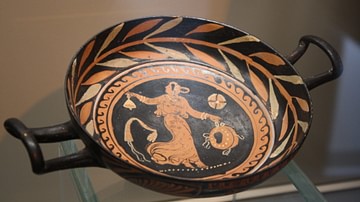
Definition
Bacchae
The Bacchae is a Greek tragedy written by the playwright Euripides (c. 484-406 BCE) in 407 BCE, which portrays Pentheus as an impious king, for the ruler of Thebes has denied the worship of Dionysus within his city walls. For Pentheus, the...
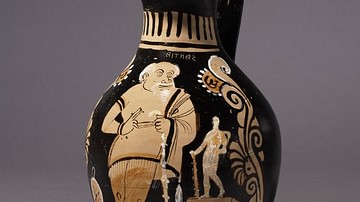
Definition
The Frogs
The Frogs is a comedy play by Aristophanes (c. 445 - c. 385 BCE), the most famous of the comic playwrights of ancient Greece. Named after the creatures who composed the play's chorus, it won first prize at the dramatic festival at Lenaea...